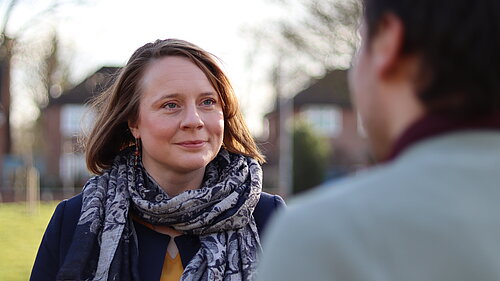Conservative’s “planning super squad” idea is half-baked, and shows no vision for our city.

Following reports in early July that Michael Gove has a “tightly guarded” plan to “turn Cambridge into Britain’s Silicon Valley”; it appears that the reality is somewhat half-baked.
When the full announcement came on 24th July, despite promises to see Cambridge “supercharged as Europe’s science capital”, the ‘plans’ so far include nothing more specific than relocating the water treatment works in Northeast Cambridge so we can build the 6000 homes already planned for the North East Cambridge development. There is some suggestion of “accelerating” this with support from a “Cambridge Delivery Group” and a planning “super-squad”, and some welcome comments about addressing water constraints, but beyond this no specific sites or numbers are yet proposed. Whether this initiative is good or bad for Cambridge remains to be seen and a lot will hang on the small print.
Notably however the official announcement came without any prior briefing to anyone in Cambridge local government, hardly a sign that these are plans the Conservatives expect to be in power to deliver, or indeed that Whitehall has any intention to take on board the opinions of those of us living here.
As the candidate to be your next MP, I think it’s important you know what I think about these plans, and the vision for the city I believe in. How we grow and evolve to meet the challenges of the cost of living, the environment and of our economy is core to this and will determine how our city changes over the next decade.
I believe Cambridge should be a global power for good, projecting our ideas, innovation, and humanity around the world. To some extent, this is inescapable. Cambridge already contributes £30 billion to the UK economy and is a world leader in science and innovation. Britain’s first science park was built in Cambridge, Raspberry Pi was invented at Broadcom, and Europe’s first non-beating heart transplant took place at Papworth hospital. To maintain our position on the global stage, the wealth this brings with it, and to continue to deliver the powerful change our science and tech sector offers to the world, we need to provide the new homes and lab spaces to meet this demand. However, Rishi Sunak could achieve a great deal more for Cambridge’s science sector than just building laboratories. As a start, he needs to sign the Horizon research deal. The funding and international collaboration offered through this programme has been crucial for many of the research and medical institutions in Cambridge. The Conservatives’ plan to make Cambridge the science capital of Europe will simply not be possible if we are not working with Europe.
Cambridge is an evolving city and must provide homes which people can afford to live in. Cambridge’s draft new Local Plan is ambitious and is already exploring the prospect of building 48,794 homes by 2040, a number based on a realistic assessment of the projected growth in the area and its associated needs. If the government really wants to accelerate growth in Cambridge, they would do better to talk to those already working on this to find out exactly what is needed and where.
However, growth should not be at the expense of our city being pleasant to live in. This is why I believe that decisions made about Cambridge should focus on prizing the wellbeing of its citizens. Whether we build 6000 or even Mr. Gove’s proposed 250,000 homes, people should be placed at the centre of urban design and planning. Dropping in a government mandated “super squad” risks taking the decision making away from those who understand how the city works and riding roughshod over local expertise.
Our local government structure is already needlessly complicated, with a City and County Council, the Combined Authority and the Greater Cambridge Partnership handling different aspects of how our city works. It is difficult to see what another layer will add to this, beyond extra bureaucracy.
In the face of the climate crisis, we all have a duty to live lightly on the planet. Cambridge is one of the driest regions in the UK, and the Local Plan does make it clear that we require a national water infrastructure project to build reservoirs and new pipelines to sustain the level of growth we need. However many homes you build, you are unlikely to attract people to live in them if the water is rationed. We also need to ensure the infrastructure is in place from the start: 6000 homes absolutely cannot mean 6000 more cars and gas boilers. Public transport infrastructure and sustainable building standards need to be a pre-requisite before any “super-squad” begins to build here.
We should see these plans as what they are: not, as Sunak has claimed, an initiative to help make housing more affordable for young people; but as a desperate attempt to cobble together some sort of plan for housing and the UK economy before the next General Election. This is just another sign of a government that is running out of time and ideas.
If elected as Cambridge’s next MP, I will support local residents and councils in Cambridge to deliver the investment our city needs to grow sustainably with the necessary water infrastructure. This is not something to be feared but a challenge to be embraced which, if done right, can unlock social good for Cambridge. Our hospitals, innovation and facilities will all benefit. However, to be successful, these half-baked ideas need to be developed hand in hand with local government and residents to ensure they provide homes which are affordable, sustainable and place community at their heart.
